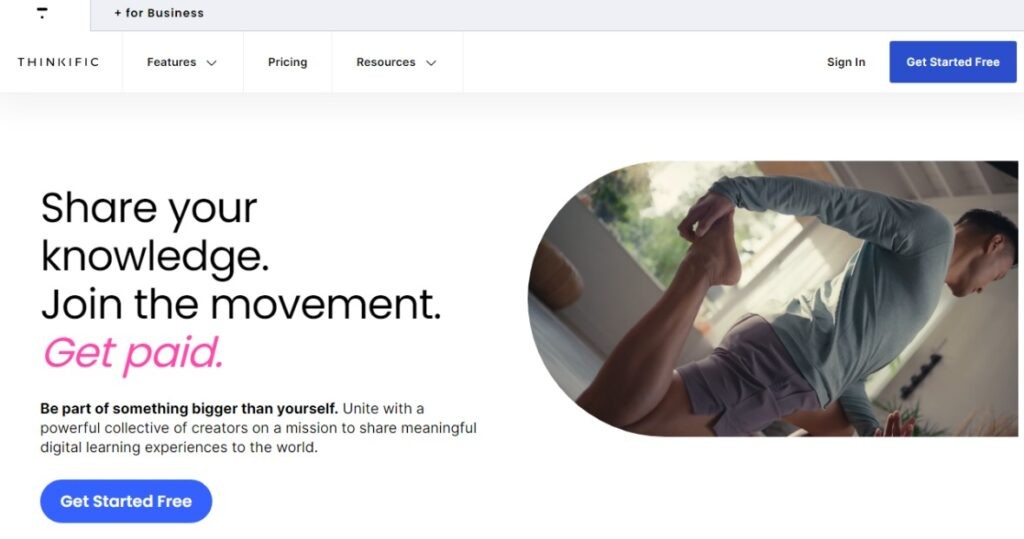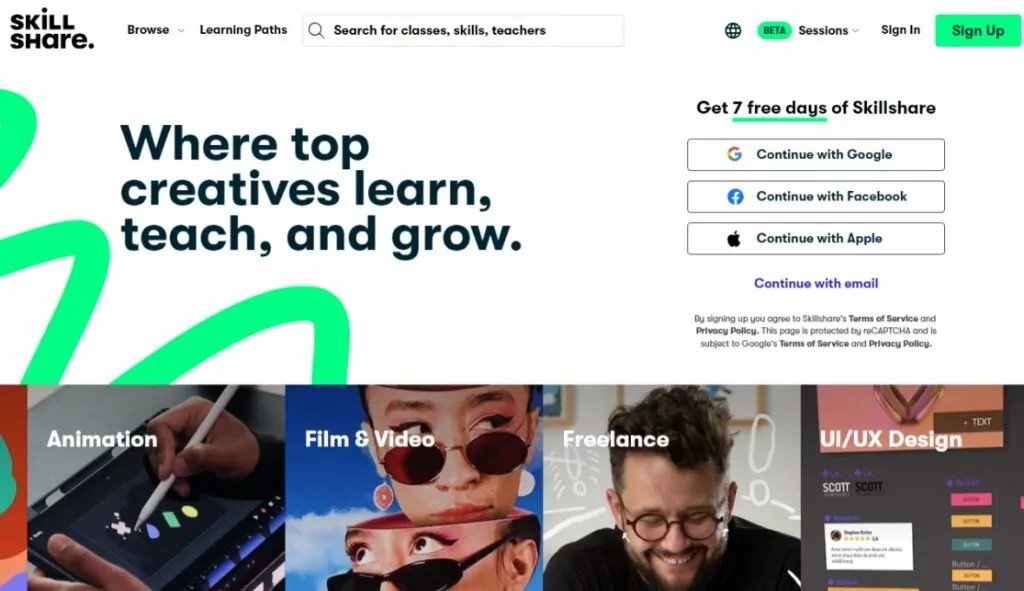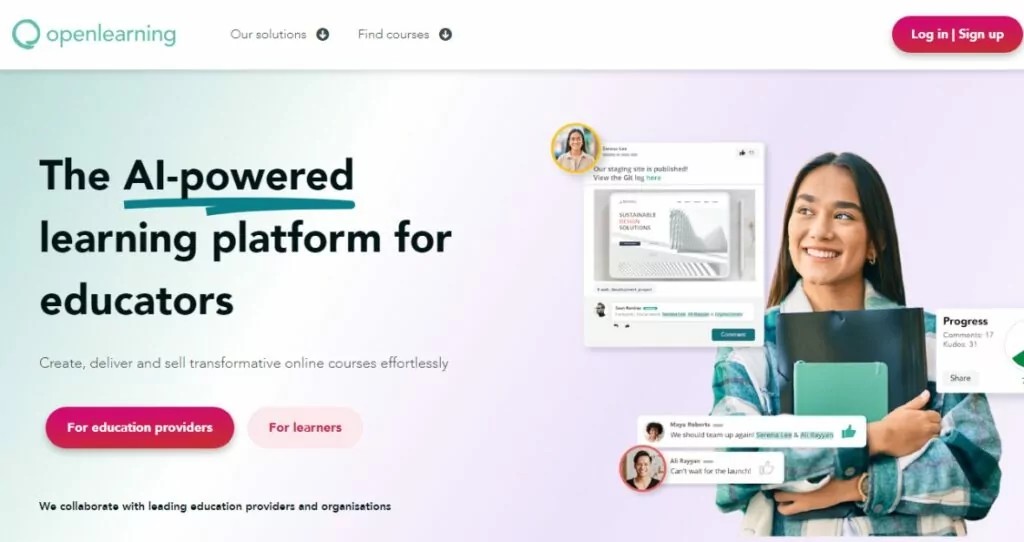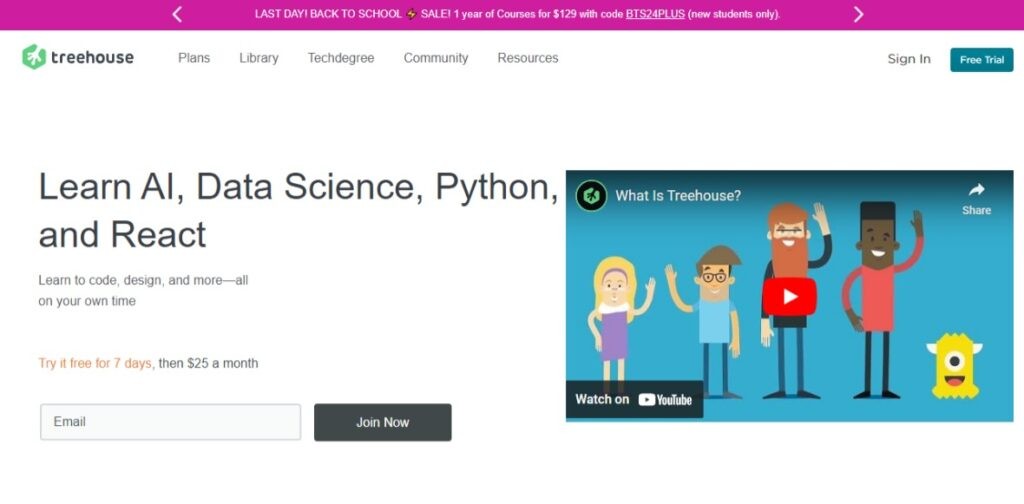Online learning has become an indispensable part of higher education. Colleges and universities are increasingly leveraging online learning platforms to expand their reach, offer flexible learning options, and enhance the educational experience for students. But with a plethora of platforms available, selecting the right one can be a daunting task. This guide explores the top Online Learning Platforms Used By Colleges, helping institutions make informed decisions to meet their unique needs.
Skip ahead:
Quick Facts: Leading Online Learning Platforms for Colleges
| Platform | Best For Colleges Seeking | G2 Score | Pricing for Institutions |
|---|---|---|---|
| Custom Course Creation & Scalability | 4.7/5 | Custom pricing based on institutional needs | |
| Accredited Programs & University Partnerships | 4.5/5 | Partnership-based; program-specific costs | |
| Professional Development & Skills Enhancement | 4.4/5 | Enterprise solutions with bulk discounts | |
| Creative and Project-Based Learning | 3.4/5 | Team and enterprise plans available | |
| Formal Degree Programs & STEM Focus | 4.5/5 | Institutional partnerships and program fees | |
| Community Engagement & Micro-credentials | 4.6/5 | Custom plans for educational institutions | |
| Wide Course Variety & Flexible Integration | 4.5/5 | Enterprise access and API integrations | |
| Coding & Tech-Focused Education | 4.3/5 | Team plans and educational licenses | |
| Expert-Led, High-Production Value Content | 4.5/5 | Enterprise subscriptions for educational use | |
| Foundational Course Access & Open Educational Resources | 4.5/5 | Free for educational use |





The Value Proposition of Online Learning Platforms for Higher Education
Online learning platforms are transforming higher education by offering unprecedented flexibility and accessibility. As highlighted in the paper “Online Learning Platforms: Reconstructing Modern Higher Education,” by Zi-Yu Liu, Natalya Lomovtseva, and Elena Korobeynikova, these platforms are not just tools but catalysts for change. They bring significant advantages to colleges, including:
- Expanded Access: Reaching students beyond geographical limitations, including non-traditional learners and those in remote areas.
- Cost Efficiency: Potentially reducing operational costs associated with physical infrastructure and in-person delivery.
- Modular Content Delivery: Enabling the creation of courses broken down into manageable modules, enhancing learning retention and flexibility.
- Adaptable Learning: Catering to diverse learning styles and paces, allowing students to learn at their own speed.
- Modern Pace Alignment: Keeping curriculum and delivery methods current with technological advancements and evolving student expectations.
- Enhanced Assessment Capabilities: Offering diverse methods for evaluating student understanding and progress, beyond traditional exams.
For colleges looking to innovate and stay competitive, integrating robust online learning platforms is no longer an option but a necessity.
Key Considerations for Colleges Choosing an Online Learning Platform
Selecting the ideal online learning platform requires careful evaluation of several critical factors. Colleges must balance their pedagogical needs with practical considerations like budget and technical infrastructure. Here are four key aspects to consider:
-
Platform Structure and Scalability for College Environments
The structure of an online learning platform is paramount, especially for colleges managing numerous courses and students. A well-structured platform ensures a seamless learning experience and efficient delivery of educational content. Unlike piecing together resources from disparate sources like YouTube, a dedicated platform provides a structured, progressive environment crucial for independent learning and consistent educational quality. Colleges should assess:
- Scalability: Can the platform accommodate a growing student body and course catalog without performance issues?
- Integration Capabilities: Does it integrate with existing college systems like Student Information Systems (SIS) and Learning Management Systems (LMS)?
- Customization: Can the platform be customized to reflect the college’s branding and unique pedagogical approaches?
- User-Friendliness: Is the platform intuitive for both instructors and students, minimizing the learning curve and support needs?
-
Course Content Relevance and Breadth for Academic Disciplines
The availability and nature of course content are critical, whether a college aims to host its own curriculum or leverage existing resources. For institutions developing their online programs, the platform should support diverse content formats and pedagogical approaches relevant to various academic disciplines. Considerations include:
- Content Creation Tools: Does the platform offer robust tools for instructors to create and upload diverse content, from lectures and readings to interactive simulations and assessments?
- Content Library (if applicable): If leveraging pre-existing courses, does the platform offer content aligned with college-level curricula and a variety of disciplines?
- Specialization Support: Does the platform cater to the specialized needs of different departments, such as STEM, humanities, or vocational training?
- Open Educational Resources (OER) Integration: Does it facilitate the integration of OER to reduce costs and enhance curriculum flexibility?
-
Community and Support Features for College Students and Faculty
Building a thriving online learning community is vital for student engagement and success. For colleges, this extends to faculty support and peer-to-peer interaction. A strong community element in an online learning platform can foster collaboration, reduce student isolation, and enhance the overall learning experience. Key community and support features include:
- Discussion Forums and Social Learning Tools: Does the platform facilitate student interaction, group projects, and peer support?
- Instructor-Student Communication Tools: Does it offer effective channels for instructors to communicate with students, provide feedback, and offer support?
- Technical Support for Institutions: What level of technical support is provided to the college and its faculty in managing the platform and resolving issues?
- Faculty Training and Development Resources: Does the platform provider offer resources to help faculty effectively transition to online teaching and utilize the platform’s features?
-
Pricing Models and Institutional Budget Considerations
Cost is a significant factor for colleges, especially when deploying online learning platforms at scale. Understanding the pricing models and associated costs is crucial for budget planning and long-term sustainability. Colleges should evaluate:
- Pricing Structure: Is it subscription-based, per-user, or based on course enrollments? Are there volume discounts for large institutions?
- Hidden Costs: Are there additional fees for features like content storage, bandwidth, or premium support?
- Return on Investment (ROI): Does the platform offer features and benefits that justify the cost, such as increased enrollment, improved student outcomes, or enhanced institutional reputation?
- Free or Trial Options: Does the platform offer free trials or free tiers for initial evaluation and pilot programs?
Exploring 10 Leading Online Learning Platforms for Colleges
Having considered the key factors, let’s delve into 10 of the best online learning platforms that are well-suited for college and university environments:
-
Thinkific
Thinkific stands out as a highly flexible platform ideal for colleges wanting to create custom online learning experiences. It’s not a course marketplace but a robust system for institutions to build and host their own branded online courses and programs. Its intuitive interface and extensive customization options make it suitable for diverse college departments and initiatives.
Best For Colleges: Custom course creation, building branded college-specific learning portals, offering professional development and continuing education programs.
G2 Score: 4.7/5
Institutional Pricing: Custom pricing available, with plans scaling to meet the needs of large educational institutions.
Key Advantages for Colleges:
- White-labeling and Branding: Allows colleges to fully brand the platform, creating a seamless extension of their institutional identity online.
- Flexible Course Builder: Offers drag-and-drop simplicity for course creation, supporting various content types and multimedia.
- Scalability and Reliability: Designed to handle large numbers of students and courses, ensuring platform stability during peak usage.
- Direct Control over Content and Pricing: Colleges retain full control over their course content, curriculum, and pricing strategies.
Considerations for Colleges:
- No Built-in Course Marketplace: Colleges are responsible for marketing and promoting their own courses, as Thinkific does not have a built-in student marketplace.
- Focus on Course Creation Tools: While robust for creation, it may require integration with other systems for comprehensive LMS functionalities if needed.
“It was just so easy. I decided to stick with it, and I have never had any problems. If I’d known that platforms like Thinkific were available to me, I think I could have handled it better on my own from the beginning.” — Amanda Schonberg, Entrepreneur using Thinkific
Pros for Colleges Cons for Colleges – Highly customizable and brandable platform – Scalable for large institutions – Excellent course creation tools – Requires colleges to handle course marketing – Not a traditional LMS with extensive back-end features -
Coursera
Coursera partners with top universities globally, offering a vast catalog of accredited certificates and degree programs. For colleges, Coursera provides an opportunity to extend their reach by offering online versions of their programs or accessing a wealth of high-quality content for their students.
Best For Colleges: Offering accredited online certificates and degrees, accessing university-level content, partnerships with global institutions, and providing continuing education.
G2 Score: 4.5/5
Institutional Pricing: Partnership-based, with costs varying depending on program type and scale.
Key Advantages for Colleges:
- Prestige and Brand Association: Partnership with a globally recognized platform enhances a college’s online presence and credibility.
- Access to Diverse Content: Colleges can integrate Coursera’s extensive course library into their own offerings, expanding subject coverage.
- Accreditation and Recognition: Certificates and degrees earned through Coursera are often recognized by employers and other educational institutions.
- Global Reach: Facilitates attracting students from around the world to a college’s online programs.
Considerations for Colleges:
- Revenue Sharing Model: Partnerships often involve revenue sharing agreements, which colleges need to consider in their financial planning.
- Curriculum Alignment: Colleges need to ensure that Coursera content aligns with their academic standards and learning outcomes.
“Being a mother — especially a working mother means I’m constantly trying to juggle my schedule, my kids’ schedules, and work. I am very grateful for the flexible and remote learning programs that Coursera has to offer.” — Kenia R., Coursera Learner
Pros for Colleges Cons for Colleges – Association with a reputable global platform – Access to a wide range of university-level courses – Facilitates offering accredited online programs – Partnership model may involve revenue sharing – Curriculum alignment needs careful consideration -
LinkedIn Learning
LinkedIn Learning, while primarily aimed at professional development, offers valuable resources for colleges, particularly in career services and skill-based training. Colleges can leverage it to enhance students’ professional skills, prepare them for the job market, and offer faculty development resources focused on industry-relevant skills.
Best For Colleges: Professional skill-building for students, career readiness programs, faculty development in technology and business skills, integrating with career services.
G2 Score: 4.4/5
Institutional Pricing: Enterprise solutions with bulk pricing available for educational institutions.
Key Advantages for Colleges:
- Career-Focused Content: Courses directly address skills in demand by employers, enhancing student employability.
- Integration with LinkedIn Profiles: Certifications earned can be easily added to student LinkedIn profiles, boosting their professional visibility.
- Faculty Development Resources: Provides resources for faculty to update their skills in technology, business, and other professional areas.
- Industry Relevance: Content is often created by industry experts, ensuring practical and up-to-date skills training.
Considerations for Colleges:
- Primarily Professional Skills: Content is less focused on traditional academic disciplines and more on career-oriented skills.
- LinkedIn Profile Dependency: Access and benefits are tied to having a LinkedIn profile, which may not be universally adopted by all students.
“Step by step, we’re leveraging LinkedIn Learning to exchange knowledge and create a more open learning culture,” said Stefanie. “We’re changing the learning mindset to teach our coworkers how they can use LinkedIn Learning to build up their skills and grow their careers.” — Stefanie Reich, CDW, using LinkedIn Learning for employee development
Pros for Colleges Cons for Colleges – Focus on career-relevant skills and professional development – Enhances student employability and career readiness – Useful for faculty professional development – Less emphasis on traditional academic subjects – Reliance on LinkedIn profiles for full benefits -
Skillshare
Skillshare, known for its focus on creative skills and project-based learning, can be beneficial for colleges with strong arts, design, and media programs. It offers a platform for students to develop practical creative skills and build portfolios, and can supplement traditional arts education with contemporary, industry-relevant techniques.
Best For Colleges: Creative arts programs, design schools, media and communications departments, project-based learning in creative fields, portfolio development.
G2 Score: 3.4/5
Institutional Pricing: Team and enterprise plans are available for educational institutions.
Key Advantages for Colleges:
- Creative Skills Focus: Specialized in arts, design, filmmaking, writing, and other creative disciplines.
- Project-Based Learning: Courses emphasize hands-on projects, fostering practical skill development and portfolio building.
- Real-World Creatives as Instructors: Courses are often taught by practicing artists and designers, offering industry insights.
- Mobile Accessibility: Mobile app allows for learning on-the-go, catering to students’ flexible lifestyles.
Considerations for Colleges:
- Depth of Content: Courses may be less in-depth than traditional academic courses, focusing more on practical skills.
- Instructor Vetting: Instructor qualifications may vary, as it’s an open platform for creative professionals.
“I absolutely love Skillshare! There are a huge range of subjects to choose from with different levels usually available. The rating system is terrific for picking teachers. I’ve also never had a bad teacher—of the classes I’ve taken, the teachers have all been wonderful. Can’t recommend Skillshare enough!” — Elizapainter, Skillshare User Review
Pros for Colleges Cons for Colleges – Specializes in creative skills and project-based learning – Industry-relevant skills taught by creative professionals – Mobile learning accessibility – Courses may lack in-depth academic rigor – Instructor qualifications can vary -
edX
edX, founded by Harvard and MIT, is renowned for its formal education offerings from top universities worldwide. It’s an excellent platform for colleges seeking to offer rigorous, university-level online courses, professional certificates, and even full degree programs. Its focus on STEM fields makes it particularly relevant for institutions with strong science and technology departments.
Best For Colleges: Formal online education, STEM programs, university-level courses, professional certificates and degrees, partnerships with top global universities.
G2 Score: 4.5/5
Institutional Pricing: Partnership-based, with program fees and institutional agreements.
Key Advantages for Colleges:
- High-Quality, University-Level Content: Courses are developed and delivered by faculty from leading universities.
- Formal Education Credentials: Offers pathways to earn professional certificates, bachelor’s, and master’s degrees online.
- STEM Focus: Strong in science, technology, engineering, and mathematics disciplines, aligning with critical areas of higher education.
- Affordable Degree Options: Provides more cost-effective routes to earning degrees compared to traditional in-person programs.
Considerations for Colleges:
- Less Creative Fields: Content is less extensive in creative arts and humanities compared to STEM fields.
- Cost for Certificates and Degrees: While courses may be free to audit, earning certificates and degrees involves fees.
“edX has a wide range of courses that are easy to follow and genuinely useful. I just finished a course in Project Management, and it’s already making a difference at work.” — Louise, edX Learner Review
Pros for Colleges Cons for Colleges – High-quality university content from top institutions – Strong focus on STEM fields and formal education – Offers accredited certificates and degrees – Fewer courses in creative arts and humanities – Certificates and degrees come at a cost -
OpenLearning
OpenLearning distinguishes itself with its emphasis on community and collaborative learning. It’s particularly popular in regions like Australia and offers micro-credentials that can be laddered into university degrees. For colleges, OpenLearning provides a platform to foster active learning, build online communities, and offer flexible, stackable credentials.
Best For Colleges: Community-focused learning, micro-credentials, competency-based education, collaborative learning environments, institutions in Australia and similar regions.
G2 Score: 4.6/5
Institutional Pricing: Custom plans for educational institutions, with course creation and micro-credential options.
Key Advantages for Colleges:
- Community-Centric Design: Platform is built to encourage interaction, collaboration, and peer learning.
- Micro-credentialing Support: Enables colleges to offer and manage micro-credentials that recognize specific skills and competencies.
- Stackable Credentials: Micro-credentials can often be applied towards larger degree programs, providing flexible learning pathways.
- AI-Powered Features: Leverages AI to enhance learning experiences and platform functionality.
Considerations for Colleges:
- Course Costs: Micro-credential courses can be relatively expensive for students compared to individual courses on other platforms.
- Regional Focus: Stronger presence and adoption in certain regions like Australia, which may influence community size in other areas.
“The taster team at CSU has had unbelievable support from the OpenLearning team. Whether it involved suggesting ways to improve our search results, creating a results-oriented marketing campaign, developing creative and clean online modules, responding to any technical requests, or providing input and feedback into a myriad of questions, OpenLearning has been there for us.” — Professor Valerie Peachey, Charles Sturt University, Australia
Pros for Colleges Cons for Colleges – Strong community and collaborative learning focus – Supports micro-credentials and stackable learning – AI-powered features for enhanced learning – Micro-credential courses can be costly – Regional focus may affect community size in some areas -
Udemy
Udemy boasts the largest selection of courses across a vast range of topics, from personal development to professional skills and academic subjects. For colleges, Udemy can serve as a resource for supplemental learning, offering students access to a wide variety of affordable courses to broaden their knowledge or gain specific skills outside the core curriculum.
Best For Colleges: Supplemental learning resources, affordable course options for students, diverse subject coverage, professional development for staff, access to a massive course library.
G2 Score: 4.5/5
Institutional Pricing: Enterprise access and API integrations are available for businesses and educational institutions, allowing for custom integrations.
Key Advantages for Colleges:
- Vast Course Catalog: Largest online course marketplace, offering courses on virtually any topic imaginable.
- Affordability: Courses are generally priced individually and are often very affordable, making learning accessible to a wide range of students.
- No Subscription Required: Students can purchase individual courses as needed without ongoing subscription fees.
- Flexible Learning Pace: Courses are typically self-paced, allowing students to learn at their own speed.
Considerations for Colleges:
- Course Quality Varies: Due to the open nature of the platform, course quality can be inconsistent; careful selection is needed.
- No Academic Credit: Courses typically do not offer academic credit transferable to degree programs.
- Limited Higher Education Focus: While subjects are diverse, the platform is not specifically designed for the rigor of higher education curricula.
“The beauty of Udemy is that anyone, anywhere with an internet connection can learn from the world’s experts. Most courses are taught on demand, meaning you can take them at your own pace, and every course includes a discussion board where you can interact with the instructor and your fellow students. The best part is that most courses are free(!)… and even the paid courses cost far less than what you’d pay at a local college or university.” — Udemy Reviews, edshelf
Pros for Colleges Cons for Colleges – Largest selection of courses on diverse topics – Highly affordable and accessible for students – No subscription model, pay-per-course flexibility – Course quality can be inconsistent – Courses generally don’t offer academic credit – Not specifically tailored for higher education rigor -
Treehouse
Treehouse specializes in coding and web development education. For colleges with computer science, information technology, or related programs, Treehouse offers a focused and effective platform for students to learn technical skills. Its structured learning paths and hands-on coding exercises make it particularly valuable for practical tech education.
Best For Colleges: Computer science departments, IT programs, web development and coding education, hands-on technical skills training, institutions focused on tech careers.
G2 Score: 4.3/5
Institutional Pricing: Team plans and educational licenses are available for colleges and universities.
Key Advantages for Colleges:
- Specialized in Tech Skills: Focuses exclusively on coding, web development, and related tech disciplines.
- Structured Learning Tracks: Courses are organized into progressive learning paths, guiding students from beginner to advanced levels.
- Interactive Coding Environment: Features a built-in text editor and interactive exercises for hands-on coding practice.
- Affordable Tech Education: Offers a cost-effective way to provide high-quality tech skills training.
Considerations for Colleges:
- Limited Subject Scope: Content is almost exclusively focused on programming and web development, not suitable for broader subject areas.
- Less Formal Academic Style: Teaching style is more practical and industry-oriented, which may differ from traditional academic approaches.
“Treehouse has such a variety of learning, and the easy-to-follow videos, challenges, and practices are fantastic. The community is amazing, especially in the Techdegrees.” — Claire Tregunna, Treehouse Learner
Pros for Colleges Cons for Colleges – Highly specialized in coding and web development – Structured learning paths and hands-on practice – Affordable tech skills education – Subject scope is limited to tech skills – Less formal academic teaching style -
MasterClass
MasterClass features courses taught by world-renowned experts and celebrities across various fields. While not traditionally academic, it can offer colleges unique supplementary content, particularly in creative fields, leadership, and personal development. Colleges might use MasterClass to inspire students, provide access to expert insights, or offer unique learning experiences outside the standard curriculum.
Best For Colleges: Supplementary learning, inspirational content, creative arts and writing programs, leadership development, unique expert perspectives, enrichment programs.
G2 Score: 4.5/5
Institutional Pricing: Enterprise subscriptions are available for educational institutions, allowing for group access.
Key Advantages for Colleges:
- Expert-Led Instruction: Courses taught by highly accomplished professionals and celebrities, offering unique insights.
- High-Production Value: Professionally produced, engaging video lessons with excellent production quality.
- Inspirational Content: Motivates and inspires students with stories and lessons from leading figures in various fields.
- Diverse Subject Areas: Covers a range of subjects from culinary arts and writing to business and science.
Considerations for Colleges:
- Introductory Level Content: Courses are generally designed for a broad audience and may not delve into deep academic theory.
- No Formal Assessment or Progression Tracking: Platform lacks features for formal assessment or tracking student progress in a structured academic setting.
- Limited Scope for Traditional Academics: Content is less focused on core academic disciplines and more on expert insights and skills.
“Masterclass is amazing! The instructors are top experts, and the lessons are both inspiring and practical. The platform is user-friendly, and the video lessons are so engaging. I really can’t fault Masterclass!” — Jasmine, MasterClass Learner Review
Pros for Colleges Cons for Colleges – Unique expert-led content with celebrity instructors – High-quality, engaging video production – Inspirational and motivational learning experiences – Content is generally introductory and less academically rigorous – Lacks formal assessment and progression tracking – Limited focus on core academic subjects -
Khan Academy
Khan Academy is a non-profit organization providing free educational resources primarily focused on K-12 subjects, but also offering valuable foundational content in mathematics, science, economics, and humanities suitable for college preparatory programs or as refreshers for introductory college courses. Its free access and comprehensive coverage of foundational topics make it a valuable resource for colleges to support student readiness and bridge knowledge gaps.
Best For Colleges: College preparatory programs, foundational course support, remedial education, open educational resources, math and science refreshers, supporting underprepared students.
G2 Score: 4.5/5
Institutional Pricing: Completely free for educational use, as Khan Academy is a non-profit organization.
Key Advantages for Colleges:
- Free and Accessible: Completely free resources, eliminating cost barriers for institutions and students.
- Comprehensive Foundational Content: Extensive coverage of math, science, and other foundational subjects.
- Personalized Learning: Offers personalized learning paths and adaptive practice exercises.
- Multilingual Support: Content available in multiple languages, beneficial for diverse student populations.
Considerations for Colleges:
- K-12 Focus: Primarily designed for K-12 education, content may be too basic for advanced college-level study.
- Limited Higher Education Depth: While excellent for foundational knowledge, it lacks the depth and rigor of advanced college coursework.
- No Formal Credentials: Does not offer certificates or degrees recognized for academic credit.
Pros for Colleges Cons for Colleges – Completely free and accessible educational resources – Comprehensive foundational content in core subjects – Personalized learning paths and adaptive practice – Primarily focused on K-12 education level – Lacks depth for advanced higher education – No formal academic credentials offered
Leveraging Online Learning Platforms to Enhance College Education
Online learning platforms offer colleges a powerful toolkit to enhance their educational offerings, expand access, and adapt to the evolving needs of modern learners. By carefully considering their institutional goals, pedagogical approaches, and budget constraints, colleges can select and implement platforms that best support their mission and empower their students for success in the digital age.
While the focus here has been on platforms suitable for college use, the ability to create and monetize content remains a valuable aspect. Colleges can utilize platforms like Thinkific to not only deliver internal courses but also to extend their reach through professional development programs and continuing education offerings, generating new revenue streams and further solidifying their role in lifelong learning.
Start exploring these platforms and consider how they can transform and elevate your institution’s educational landscape.
